Ever wonder why you’re feeling sluggish, bloated, or on edge despite eating what seems “normal”? The truth is, many everyday junk foods are quietly sabotaging your health, stealing your energy, and paving the way for serious health issues down the road. From salty snacks that spike your blood pressure to sugary treats that wreak havoc on your metabolism, these culprits hide in plain sight in your pantry and drive-thru bags. It’s time to uncover the worst offenders—17 junk foods draining your health and 5 you should stop eating immediately to reclaim your vitality, energy, and overall well-being.
1. Soda (Regular & Diet)
That fizzy drink in your hand packs a devastating health punch. Regular sodas contain up to 10 teaspoons of sugar per can, while diet versions replace sugar with artificial sweeteners that may disrupt your metabolism.
Your body gets zero nutritional benefits while consuming what amounts to liquid candy. The phosphoric acid in cola drinks also weakens bones by leaching calcium from your body.
Regular consumption leads to weight gain, increased diabetes risk, and dental problems. Even one can daily adds up to 150,000 empty calories yearly – equivalent to 43 pounds of potential weight gain!
2. Fried Chicken
Golden and crispy on the outside, fried chicken delivers a double whammy of unhealthy fats. The combination of fatty skin and breading soaks up oil like a sponge during frying.
A single piece contains approximately 300-400 calories, mostly from fat. Fast food versions often use oils repeatedly, creating harmful compounds that increase inflammation in your body.
The breading adds refined carbs with little nutritional value. When consumed regularly, fried chicken contributes to obesity, heart disease, and high cholesterol levels that can damage your arteries over time.
3. Egg and Sausage Sandwiches
Morning convenience comes at a steep health price with these portable breakfast options. The processed sausage patty alone contains preservatives, fillers, and up to 500mg of sodium – nearly a quarter of your daily limit.
White bread or biscuits add refined carbohydrates that spike blood sugar levels and leave you hungry again shortly after eating. The combination of processed meat and refined grains creates a high-calorie meal with minimal nutritional benefits.
Most fast food versions pack over 500 calories and 30g of fat into a single sandwich, setting you up for energy crashes and cravings throughout your day.
4. Bacon Cheeseburgers
This American classic combines multiple health offenders in one handheld package. The processed bacon contains nitrates linked to increased cancer risk, while the beef patty contributes saturated fat that raises cholesterol levels.
Add cheese, mayo, and a refined white bun, and you’re looking at approximately 800-1000 calories and 50g of fat in a single meal. The sodium content often exceeds 1500mg – more than half your daily recommended intake.
Your heart works harder after consuming this fatty meal as blood vessels temporarily constrict. Regular consumption creates chronic inflammation that damages arterial walls over time.
5. French Fries
Those golden, crispy sticks might satisfy cravings, but they’re soaked in problems. Potatoes absorb oil like sponges during frying, transforming a naturally low-fat vegetable into a high-calorie indulgence.
Restaurant fries typically contain 400-500 calories per medium serving. The oil used for commercial frying is often reused multiple times, creating harmful compounds that increase inflammation and cancer risk.
Salt gets liberally applied, with a single serving containing up to 400mg of sodium. The starch in potatoes also converts quickly to sugar in your bloodstream, causing insulin spikes that promote fat storage.
6. Milkshakes
Behind that innocent straw lurks a dessert masquerading as a beverage. A typical fast food chocolate milkshake contains over 800 calories and 30 grams of fat – more than many full meals.
The sugar content is truly shocking, with some versions packing 120+ grams of sugar in a single serving. That’s equivalent to 30 teaspoons! Your body struggles to process this sugar flood, storing much of it as fat.
Commercial milkshakes often contain artificial flavors, stabilizers, and thickeners rather than real ingredients. The combination of sugar and fat creates a powerful addiction loop in your brain’s reward centers.
7. Potato Chips
The innocent potato transforms into a nutritional nightmare through the magic of processing. A single serving (about 15 chips) contains approximately 150 calories, 10 grams of fat, and 170mg of sodium – yet provides almost no beneficial nutrients.
The slicing and frying process destroys most of the original potato’s vitamins while creating acrylamide, a compound formed when starchy foods are cooked at high temperatures. Research has linked acrylamide to increased cancer risk.
The combination of salt, fat, and engineered crunch triggers powerful cravings in your brain. Food scientists deliberately design chips to hit the “bliss point” that keeps you reaching for more.
8. Fish and Chips
This classic comfort food drowns nutritious fish in a sea of unhealthy preparation methods. The batter coating absorbs significant oil during frying, adding hundreds of empty calories to what could have been a healthy protein source.
A typical serving contains approximately 700-900 calories and 40g of fat. The white fish used (usually cod or haddock) offers omega-3 benefits, but these are largely offset by the cooking method.
Commercial versions often use cheap oils repeatedly, creating harmful compounds. The chips portion doubles down on the problem, adding another fried component high in starch and salt that spikes blood sugar and contributes to water retention.
9. Hamburger Chili
Warm and filling, this comfort food hides serious health hazards beneath its spicy surface. Commercial versions rely heavily on fatty ground beef, with some containing up to 20 grams of fat per serving – mostly the unhealthy saturated kind.
The sodium content reaches alarming levels, often exceeding 1000mg per bowl. This puts strain on your kidneys and contributes to high blood pressure. Many prepared chilis also contain added sugars to balance the acidity of tomatoes.
Canned versions introduce additional concerns with BPA-lined containers that may leach into your food. The combination of high fat, sodium, and refined carbohydrates creates inflammation throughout your body.
10. Nachos
Stadium favorites come with stadium-sized health consequences. A standard restaurant serving contains approximately 1,500 calories – nearly a full day’s worth for many people.
The corn chips are fried and heavily salted, while processed cheese sauce adds significant saturated fat and sodium. Many nacho platters pile on additional high-fat toppings like ground beef, sour cream, and guacamole, creating a dish with up to 100g of fat.
The sodium content frequently exceeds 2,000mg – more than your entire daily recommended intake. This combination triggers inflammation, water retention, and puts immediate stress on your cardiovascular system even while you’re still enjoying the game.
11. Popcorn Shrimp
Small in size but big in health impact, these breaded morsels transform nutritious seafood into a problematic choice. The breading-to-shrimp ratio heavily favors the refined carbohydrate coating, which absorbs significant oil during frying.
A typical restaurant serving contains approximately 500 calories and 30 grams of fat – far more than the shrimp itself would provide. The cooking process also destroys beneficial omega-3 fatty acids naturally found in shrimp.
Commercial versions often use the cheapest oils and may contain trans fats, which increase heart disease risk. The high sodium content – often exceeding 800mg per serving – further compounds cardiovascular concerns while masking the natural flavor of the seafood.
12. Churros
Sweet, cinnamon-dusted churros deliver a one-two punch of refined carbs and unhealthy fats. The dough is deep-fried at high temperatures, creating a crispy exterior while soaking up significant oil – approximately 10 grams of fat per churro.
After frying, they’re rolled in sugar, adding empty calories that spike blood glucose levels rapidly. A serving of four churros can contain up to 40 grams of sugar – exceeding daily recommended limits.
The white flour used provides no nutritional benefits and digests quickly, leading to hunger soon after eating. When consumed with chocolate dipping sauce, the sugar and fat content nearly doubles, creating a dessert that wreaks havoc on your metabolism.
13. Cheesecake
Rich and creamy, cheesecake’s velvety texture comes from problematic ingredients. The cream cheese base provides significant saturated fat – approximately 20 grams per slice – which raises harmful LDL cholesterol levels when consumed regularly.
The graham cracker crust adds refined carbohydrates and often contains added sugars. Most recipes include 1+ cups of sugar, creating a dessert with 30+ grams of sugar per slice that triggers insulin spikes and inflammation.
Commercial versions often contain artificial flavors, preservatives, and stabilizers to extend shelf life. A single restaurant-sized portion can exceed 800 calories – nearly half your daily caloric needs – while providing minimal nutritional benefits beyond calcium from the dairy components.
14. Hot Dogs
Ballpark favorites pack serious health hazards into a convenient package. Made from mechanically separated meat trimmings, hot dogs contain parts of animals you’d likely never choose to eat knowingly.
Preservatives like sodium nitrite prevent bacterial growth but form nitrosamines when cooked – compounds linked to increased cancer risk. A single hot dog contains approximately 150 calories, but the nutritional concerns go far beyond calories.
The sodium content averages 500mg per dog – over 20% of your daily limit. The World Health Organization classifies processed meats like hot dogs as Group 1 carcinogens, the same category as tobacco smoking, based on sufficient evidence linking them to colorectal cancer.
15. Sugary Breakfast Cereals
Colorful boxes promising nutrition deliver mainly sugar and marketing hype. Many children’s cereals contain 12+ grams of sugar per serving – more than three teaspoons – often as the first or second ingredient.
The “fortified with vitamins” claim masks the fact that these nutrients are added artificially to compensate for the highly processed grains that have been stripped of natural nutrition. The refined carbohydrates digest quickly, causing blood sugar spikes followed by crashes that leave you hungry shortly after eating.
Most people consume far more than the listed serving size, doubling or tripling the sugar intake. Starting your day with this sugar bomb sets up a pattern of cravings and energy fluctuations that can derail healthy eating all day.
16. Energy Drinks
Marketed as performance enhancers, these chemical cocktails deliver mostly stimulants and sugar. A typical 16oz can contains 54g of sugar – equivalent to 13 teaspoons – along with 160mg of caffeine, approximately the same as two cups of coffee.
The combination creates a temporary energy surge followed by a dramatic crash. Additional ingredients like taurine, guarana, and various “proprietary blends” have limited research behind their safety or effectiveness.
Regular consumption has been linked to heart palpitations, anxiety, insomnia, and even cardiac arrest in susceptible individuals. The acidity also damages tooth enamel, while the high caffeine content can lead to dependence and withdrawal symptoms when not consumed.
17. Processed Cheese Slices
Those perfectly uniform yellow squares barely qualify as cheese. Legally labeled as “cheese product” or “cheese food,” they contain as little as 51% actual cheese mixed with emulsifiers, preservatives, and artificial colors.
The manufacturing process strips away many beneficial nutrients found in real cheese. Each slice contains approximately 200-300mg of sodium – a significant amount for such a small portion of food.
The texture comes from additives like sodium phosphate, which has been linked to increased heart disease risk when consumed regularly. While convenient, these slices provide fewer nutrients, less protein, and less calcium than real cheese while delivering more sodium, artificial ingredients, and often unwanted oils.
1. Shelf-Stable Frosting
That plastic tub of creamy sweetness is a chemical marvel – and a nutritional disaster. The first ingredient is usually sugar, with a single serving (2 tablespoons) containing approximately 20 grams – 5 teaspoons worth.
The smooth texture comes from partially hydrogenated oils – a source of harmful trans fats that raise bad cholesterol while lowering good cholesterol. Though manufacturers have reduced trans fat content in recent years, even small amounts increase heart disease risk.
Artificial colors, flavors, and preservatives round out the ingredient list. The combination of sugar and fat triggers powerful cravings through dopamine release in your brain, making it difficult to consume just a small amount of this ultra-processed food.
2. Spray Cheese
Squirting from an aerosol can, this neon-colored concoction barely resembles real cheese. The ingredient list reveals more chemicals than dairy, including stabilizers, emulsifiers, and artificial colors that give it the signature bright orange hue.
A single serving contains approximately 300mg of sodium – significant for such a small portion. The cheese content is minimal, with oils and water making up much of the volume.
Propellants help create the spray effect but add no nutritional value. Regular consumption contributes to sodium overload while providing few beneficial nutrients found in real cheese like calcium and protein. This ultra-processed food exemplifies how far modern food technology has strayed from natural ingredients.
3. Flavored Microwave Popcorn
The convenient bag hides concerning chemicals behind its buttery aroma. The flavoring compounds contain diacetyl and other artificial butter flavors linked to serious respiratory conditions when inhaled regularly – a condition known as “popcorn lung” among factory workers.
The bag lining contains PFAS (per- and polyfluoroalkyl substances) – chemicals that prevent grease leakage but can migrate into food during heating. These compounds have been linked to immune system suppression, fertility issues, and increased cancer risk.
A typical flavored variety contains approximately 300 calories per bag, with significant amounts coming from unhealthy oils. The sodium content often exceeds 500mg per serving, contributing to high blood pressure risk.
4. Pre-Packaged Pastries
Sweet convenience comes with a steep health price tag. These treats can remain shelf-stable for months thanks to preservatives and hydrogenated oils that resist spoilage but wreak havoc on your cardiovascular system.
A single pastry pocket contains approximately 400 calories, 15g of fat (often including trans fats), and 20g of sugar. The refined flour provides no fiber to slow digestion, causing rapid blood sugar spikes followed by energy crashes.
The fruit filling contains minimal actual fruit, relying instead on sugar, artificial flavors, and colors to mimic natural ingredients. Commercial versions may contain up to 30 ingredients – most of which are preservatives, stabilizers, and other chemicals rather than actual food.
5. Processed Deli Meats
Those perfectly round, uniformly colored meat slices bear little resemblance to their animal origins. Sodium nitrite preservatives give processed meats their characteristic pink color while preventing bacterial growth, but form potentially cancer-causing compounds called nitrosamines when heated.
A typical serving contains 500-800mg of sodium – a significant portion of your daily limit in just a few slices. Many varieties include added sugars, fillers, and binders to improve texture and extend shelf life.
The World Health Organization has classified processed meats as Group 1 carcinogens based on sufficient evidence linking them to colorectal cancer. Regular consumption also increases heart disease risk through mechanisms beyond just sodium and fat content.



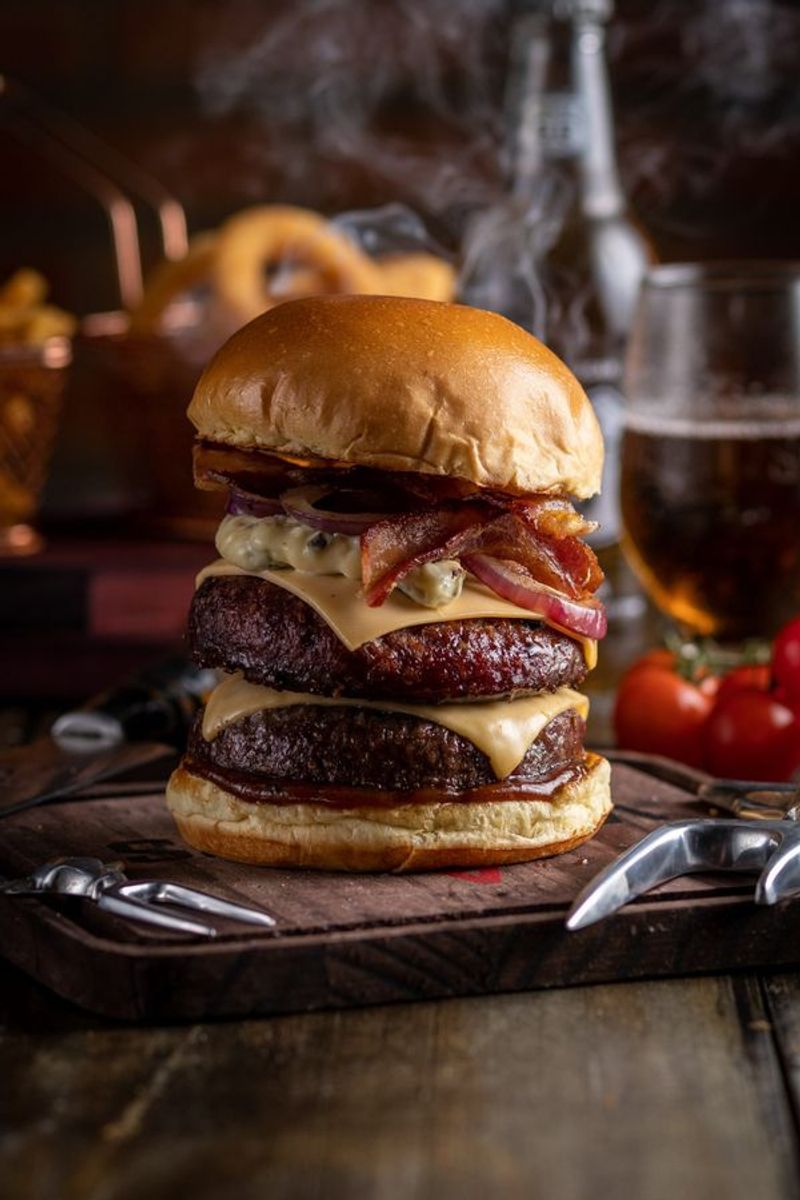


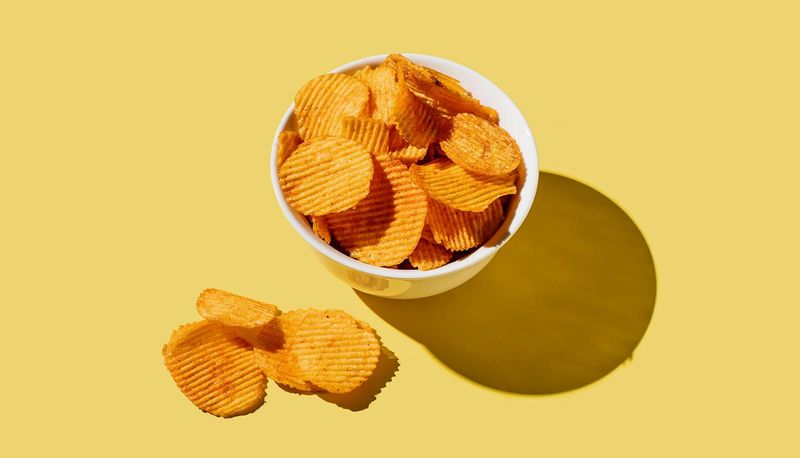

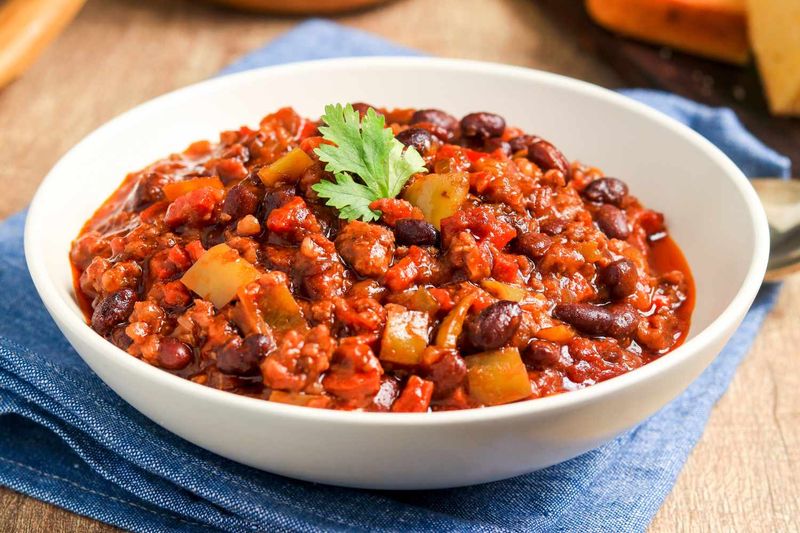

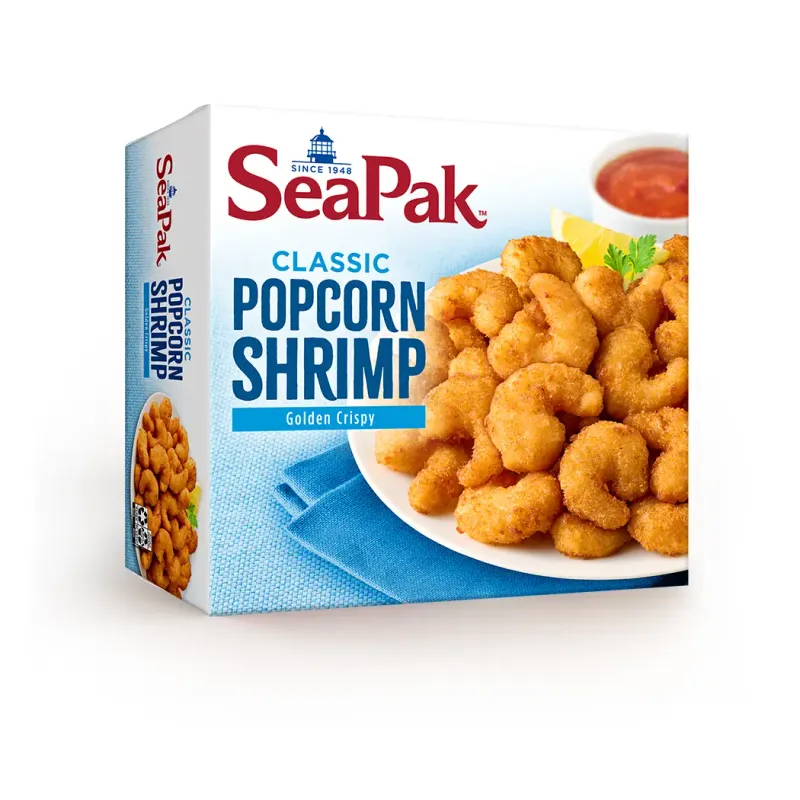
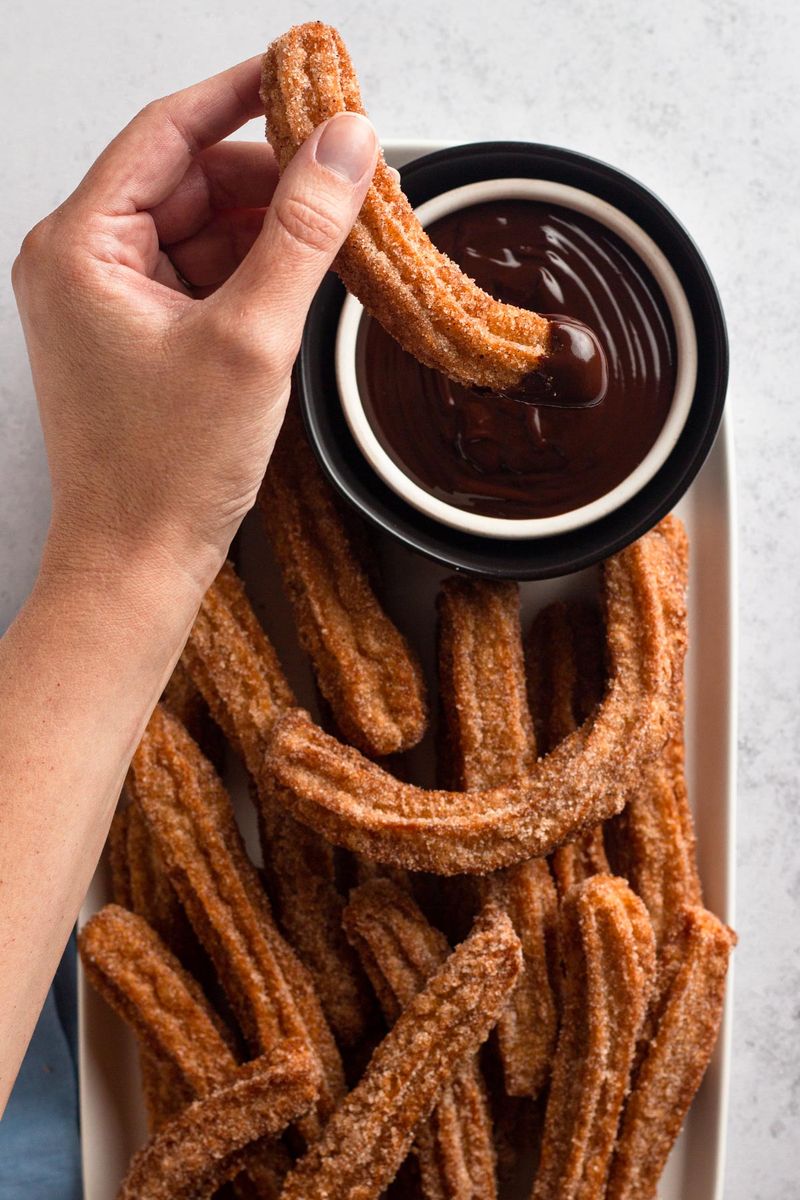


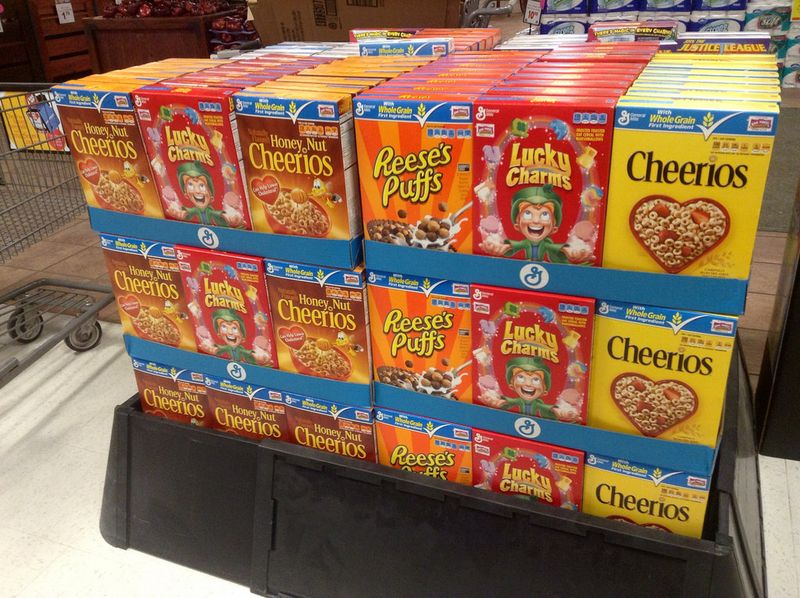
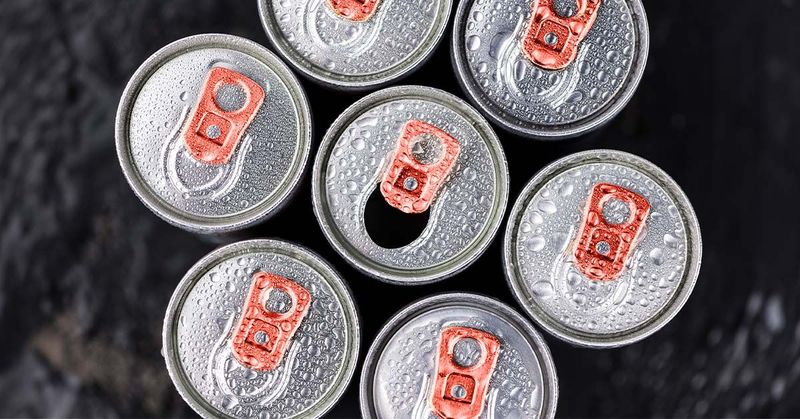


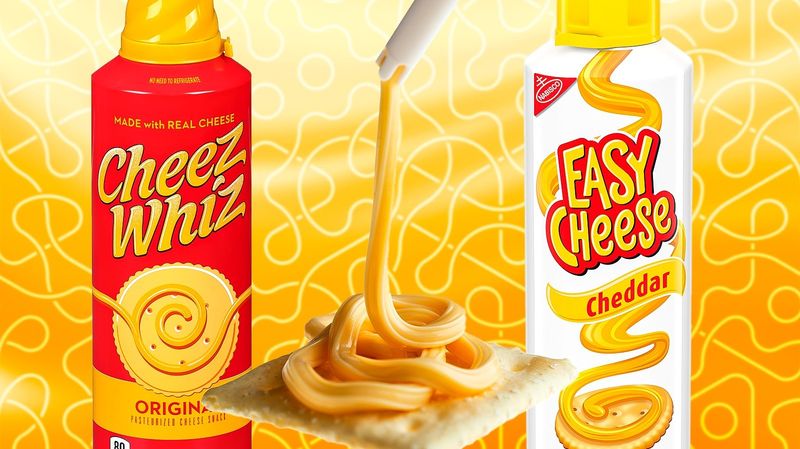


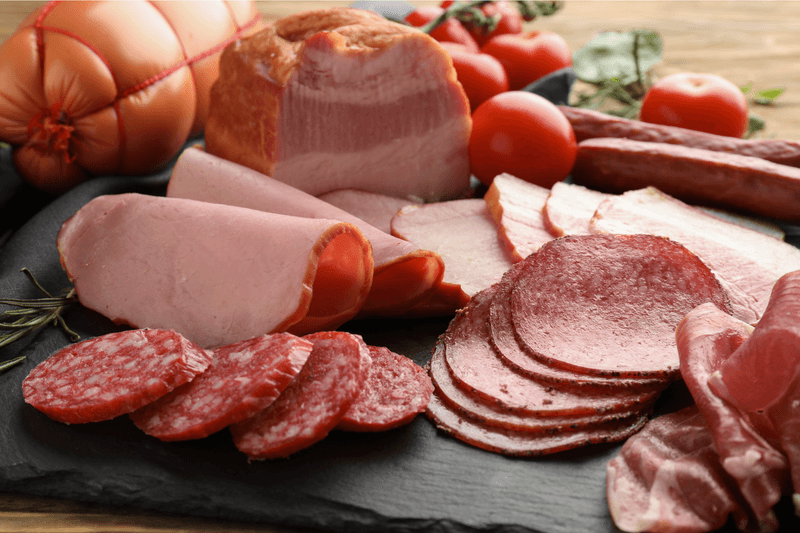
Leave a comment